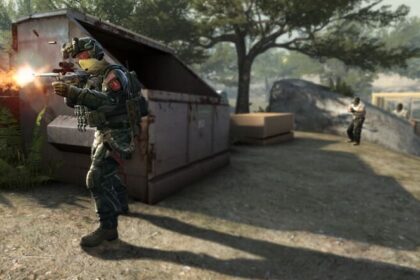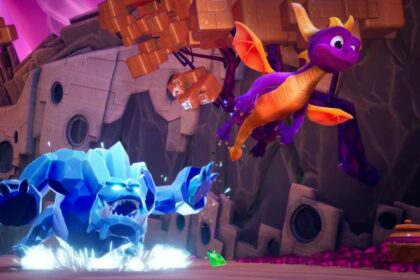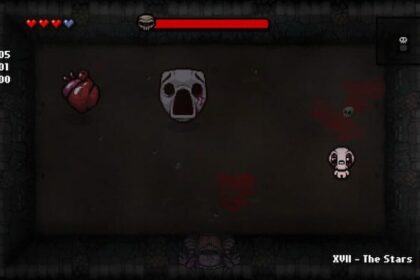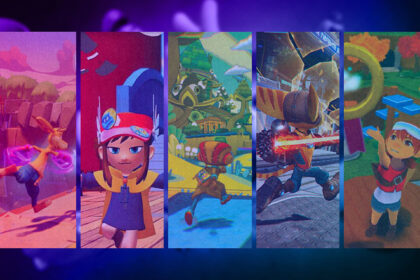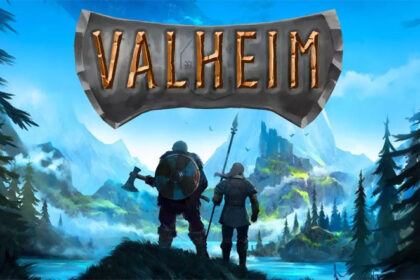When Spore came out in 2008, it was a huge event in the global gaming community. It was the first game from Maxis that wasn’t a part of their Sims franchise or one of its smaller simulation spin-offs.
Everyone followed its development eagerly for years, and with good reason. Spore was one of the most ambitious games of its time, with the aim of being the ultimate God-game simulator. You play as the guiding spirit of a species, from its single-celled origins to its evolution into a galactic-spanning, space-faring empire.
And in all of that time, you have the opportunity to mold your creatures as they evolve, with what is still one of the most innovative character creators gaming has ever seen.
Yep, there are plenty of reasons to enjoy this title — and if you’re looking for other games like Spore, we’ve got a couple of great suggestions right here! Here are 6 games like Spore to check out today.
No Man’s Sky
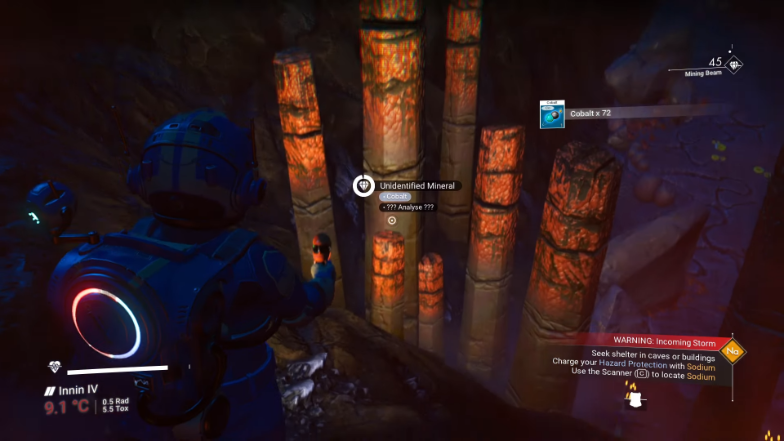
Besides carrying a decent amount of Spore’s DNA, No Man’s Sky is also probably the biggest comeback story in gaming history.
Since its first unveiling at the 2014 E3, it was the most anticipated indie game of the generation and the first one to come from a major publisher like Sony. The reason Sony gave them so much marketing space was clear: the elevator pitch for No Man’s Sky was simply too exciting to pass up.
A complete galaxy with a near-infinite number of solar systems, orbited by procedurally generated planets, each with its own distinct ecosystems, plants, and creatures. And they all await you to visit and study them on your very own Star Trek-esque adventure! The possibilities seemed endless.
However, the initial release of the game was far from the lofty goals set by its developers and the hype they built up around it. The gameplay was shallow, and there were all kinds of game-breaking bugs. But the developers rallied together and provided gamers with 6 years of completely free updates and DLC.
Today, the game is practically what it promised to be all those years ago — a chance for you to traverse the galaxy as a bold space-farer, and go through an entertaining crafting-survival gameplay loop on each planet you visit.
Also, the multiplayer aspect of the game has been flashed out as well. Now, you can invite other players into your game and dabble in some fun co-op; though, single-player space exploration remains very much the gist of the game.
If you like the freedom and creativity that games like Spore offer, No Man’s Sky is a great game for you to check out. Make sure to check out our list of the best games like No Man’s Sky for even more game recommendations.
From Dust
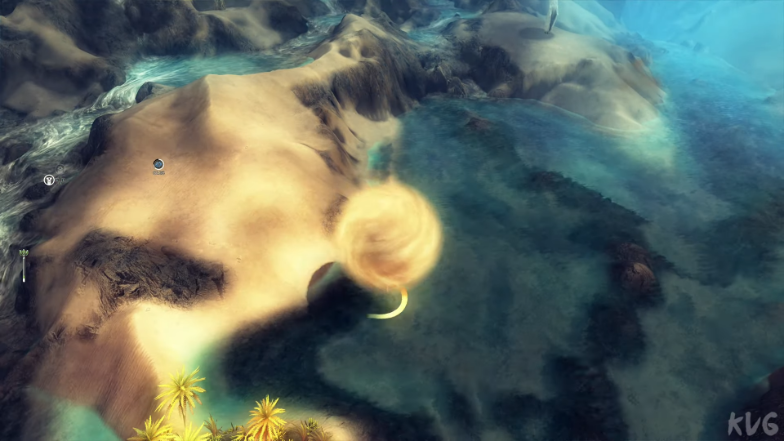
Today, it’s easier than ever to release your own game on Steam, itch.io, GOG, or a number of other online vendors. However, there’s something to be said for the indie renaissance of the early 2010s. A lot of clunky, but lovable games came out of that period, and From Dust is an unfairly forgotten example.
Though you play the game from a God-like perspective reminiscent of Spore, From Dust actually has more in common with the old Peter Molyneux games like Black and White.
The gameplay revolves around a landscape sculpting tool, which you can use to suck up and move around swirls of earth, water, and lava. This allows you to create all kinds of landscape changes, like ridges, rivers, hills, etc — all in the hopes of protecting your small band of masked tribesmen. Understandably, they’re happy to worship you in return.
As you might assume, the terraforming is by far the best-developed aspect of the game. The physics provide for some gorgeous visuals as you see lava ooze and become stone on contact with water, which sloshes around lazily or in waves.
On the other hand, your tribe is the less fun part of the game. The whole point of every level is to protect the people from the elements, long enough for the tribe to establish a settlement. However, the fact that you can’t instruct or control the tribespeople directly quickly goes from quirk to frustration. It’s not game-breaking, but worth noting.
Still, the game is short enough not to overstay its welcome, and you’ll have a fun afternoon playing a tribal God. If you want more games like Spore, this is a brilliant pick.
Deisim
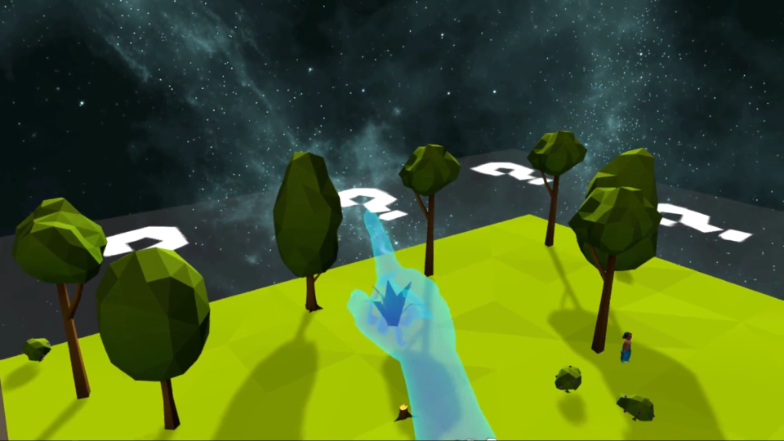
Our next pick is a bit more niche than the rest. And while it’s still in early access on Steam at the time of writing, Deisim definitely has enough to offer in its current state. The game has all the markings of a retro tile-based God game.
However, Deisim has one important distinction: it’s a VR-only game. If you want to fully immerse yourself in the role of a deity, this is your best shot. In practice, it’s something between Populous and Black and White, but with enough twists and turns to warrant its existence beyond the novelty of VR.
The gameplay itself revolves around your hand placement of tiles, which you use to sculpt the environment around you. This leads to small tribal villages appearing after a short while, whose inhabitants will promptly start using up the resources you’ve carefully arranged for them.
Just like in most other genre classics, you mostly affect the villagers indirectly; though VR makes placing buildings or picking up and throwing the villagers particularly satisfying. Still, your main goal is to guide them to growth and prosperity — also resulting in more believers for you, and more mana to play around with.
Interestingly enough, towns also spawn heretics, and if they’re given too much freedom, they might convert many of your former followers and start holy wars of conquest with their neighbors. In those cases, you’ve got a classic range of biblical terrors to bring them to submission.
All things considered, the game is quite replayable, and it’s one of the best uses of VR in a strategy game to date. If you want to find more games like Spore that put a heavier focus on strategy, this is the game for you.
Dungeons II
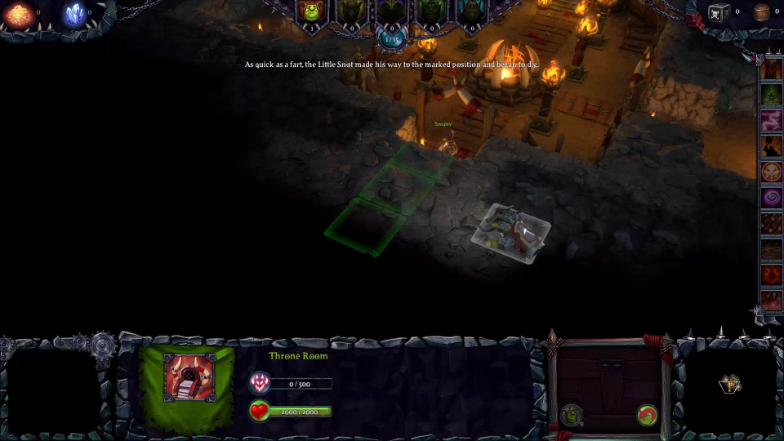
After a round of God games that have you playing as (mostly) benevolent deities, it’s time to give a shout-out to the other side. And one of the games that’s done that best in recent years is Dungeons 2.
Right from the name down to the gameplay, you can clearly see that this is a direct homage to the old Dungeon Keeper games, but there’s enough fresh stuff here to make your demon-controlling hours a lot of fun.
And speaking of which, Dungeons 2 starts you off on an excellent biblical plot. You’re playing as Evil incarnate, right after the Fall which sees you banished to the world below. However, you’ve had enough, and before the game begins, you already have your uprising against the world of Man above.
There’s always been something fun about entering a Warcraft-looking fantasy world and being the evil that wrecks it apart. However, that’s only the prologue. The actual game starts only with your downfall and second banishment to the underworld.
The previous Dungeons game also took inspiration from Dungeon Keeper, but it definitely managed to strike out on its own and bring something new to the table. The way you could create intricate underground lairs and use them to lure unsuspecting adventurers was quite clever, for example.
Interestingly enough, Dungeons II has decided to go for the classic Dungeon Keeper formula in a much stricter way. It doesn’t have many new bold ideas, but on the other hand, it manages to recreate everything that was great about Dungeon Keeper with a better interface.
If you want to play an evil lord that takes his revenge on a world of do-gooders — this is the best game in town. Fans of games like Spore will love it.
The Universim
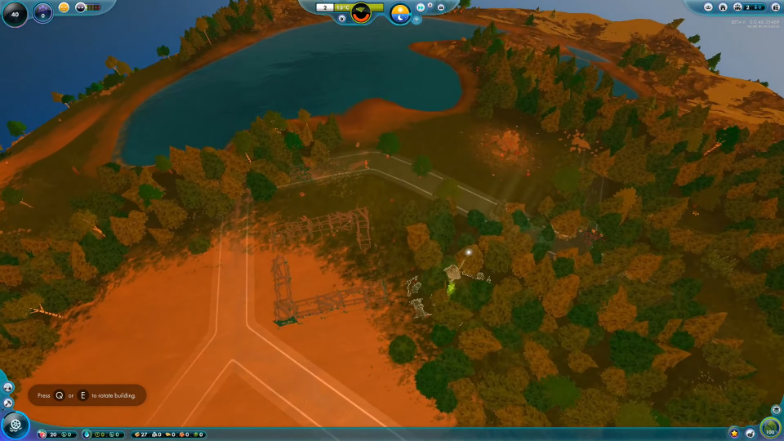
One of the few criticisms levied against Spore when it came out was that, on its own merits, each of the Stages in the game was a bit shallow. Many critics pointed out that every one of them could have been a great game in its own right, if developed properly.
The devs at Crytivo seem to have thought the same, especially about the Galactic stage of the game. Their Universim game starts at Spore’s equivalent of the Tribal stage on one planet, and allows you to lead this race and civilization to galactic dominance.
Now, bear in mind that this game is still in early access at the time of writing. Right now, you can only play the game up until your creatures’ ascent into space, but they’ve recently added the option of going to the Moon, so the Galactic stage of the game won’t be far away.
And while the game doesn’t have anything like Spore’s creature creation, it puts its focus on the actual God-game gameplay — and it’s only better for it! If you enjoy games like Spore, you’ll love this game.
Unlike the occasionally meddling quasi-deity you play in Spore, you’re much more of a true God to your creatures in The Universim. And they need plenty of guidance from you on their way to planetary dominance.
The more your civilization believes in you as a deity, the more creator points you get. It’s the classic ‘belief mana’ seen in similar genre titles.
However, these creator points allow you to do a lot more than in Universim’s genre peers. You can cause a fiery armageddon, or instantly change the seasons, and everything you do has an immediate and profound effect on the planet’s population. It’s one of the best God games on Steam and fans of games like Spore will love it.
WorldBox
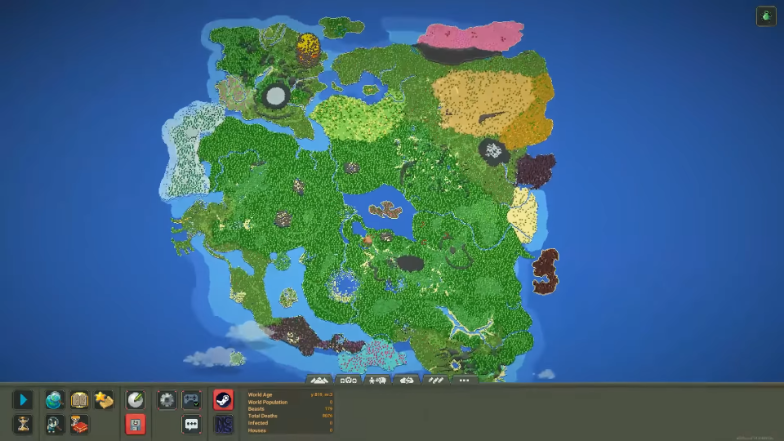
For many people, the best part about games like Spore is your omnipotence and having all the power to do anything to a world that you can imagine. And if you want a power fantasy rather than an actual challenge, WorldBox is the game for you.
It’s more of a sandbox (hence the name) than an actual game, because it has no beginning, end, or tasks. You just get a world that you can play around with, but you can do so in excruciating detail.
There are all kinds of creatures that you can populate your land with, including four classic intelligent fantasy races — orcs, humans, elves, and dwarves. On top of that, you can create tornadoes, zombies, demons, wizards, UFOs, and let them loose on the world.
Simultaneously, the four races will build their own civilizations, wage wars, make peace, research tech, and all of it is playing out in front of you! You can’t directly influence any of it, but you can place all of the pieces on the board and see what happens. It’ll take hours of your life in the blink of an eye, and more features are constantly being added.

